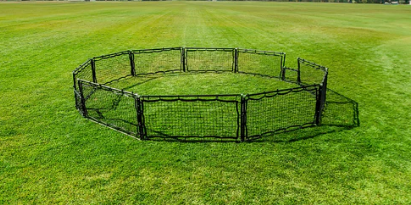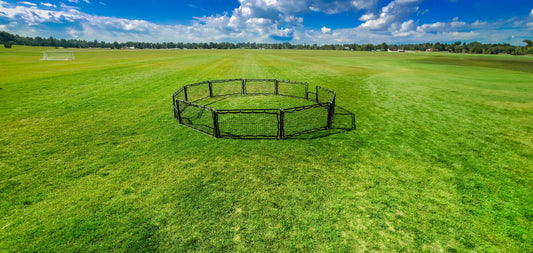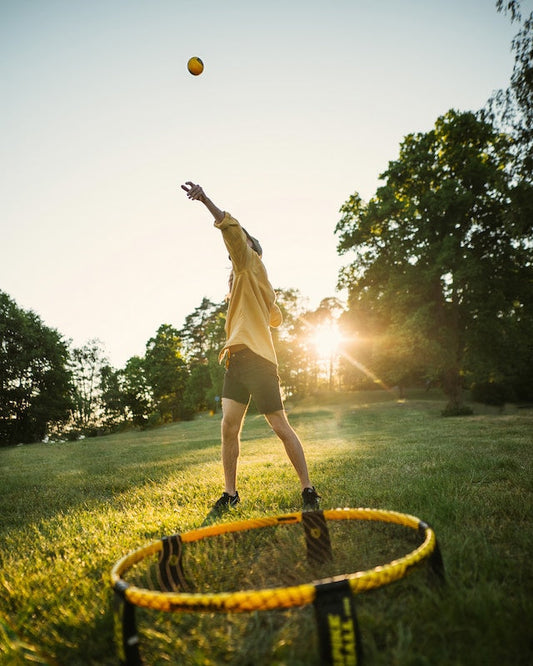Family is a fundamental institution that plays a crucial role in shaping our lives and providing us with a sense of belonging, love, and support. It is a foundation upon which we build our values, learn important life lessons, and develop meaningful relationships. The importance of family cannot be overstated, as it influences our physical, emotional, and social well-being in numerous ways.
First and foremost, family provides us with a sense of identity and belonging. From the moment we are born, our family becomes our first social unit. They are the ones who give us our names, nurture us, and create a safe and nurturing environment for our growth. Through shared experiences, stories, and traditions, family members instill in us a sense of heritage, culture, and history. They give us a place where we are accepted, loved, and understood for who we truly are.
Family is also a source of emotional support. In times of joy and celebration, as well as in moments of sadness or crisis, our family members are there to stand by our side. They provide comfort, encouragement, and guidance during difficult times, offering a shoulder to lean on and an empathetic ear to listen. The bond created within a family creates a support system that helps us navigate life's challenges with greater resilience and optimism.

Moreover, family plays a vital role in our personal development and character formation. Within the family unit, we learn essential values, morals, and ethics that shape our behavior and decision-making. From parents, we acquire lessons in honesty, integrity, responsibility, and compassion. Siblings teach us about sharing, cooperation, and conflict resolution. Grandparents pass down wisdom and knowledge accumulated over generations. These lessons and experiences within the family unit lay the foundation for our personal growth, shaping us into the individuals we become.
Family is also instrumental in fostering social skills and interpersonal relationships. It is within the family that we learn how to communicate, cooperate, and resolve conflicts. We develop empathy and understanding by interacting with different family members and learning to appreciate their unique perspectives. These skills, acquired within the family, extend beyond its boundaries and help us build strong relationships and thrive in various social settings.
In addition to the personal benefits, family has a wider impact on society as a whole. Strong families contribute to the overall well-being and stability of communities. They provide a nurturing environment for children, ensuring their physical and emotional development. Healthy family relationships contribute to a reduction in social issues such as crime, substance abuse, and mental health problems. Furthermore, families serve as the primary unit for passing on cultural and societal values, preserving traditions, and promoting social cohesion.
In today's fast-paced and often disconnected world, it is more important than ever to prioritize family bonds. Building and maintaining strong family relationships require effort, time, and commitment. It involves active communication, spending quality time together, and showing appreciation and support for one another. By investing in our families, we create a solid foundation that fosters personal growth, happiness, and resilience.
Families tend to grow and scatter to various places across the globe. One of the most common ways to catch up with long distance relatives is with a family reunion.
A family reunion is a gathering of family members who come together to reconnect, strengthen bonds, and celebrate their shared heritage and relationships. It is a special event where relatives from various branches of a family tree gather in one location to spend time with each other, often spanning multiple generations. Family reunions provide an opportunity for family members to catch up, reminisce, and create lasting memories.
Typically, family reunions involve activities such as sharing meals, engaging in conversations, playing games, participating in sports or outdoor activities, organizing photo sessions, and sometimes even planning excursions or trips together. These gatherings can range in size from a small gathering of immediate family members to a larger event that includes extended family members and relatives from distant locations.
Family reunions often occur on special occasions or milestones, such as anniversaries, significant birthdays, or holidays. They serve as a way to maintain and strengthen family ties, foster a sense of belonging, and preserve family traditions and values. Family members may travel from different parts of the country or even from abroad to attend the reunion, making it a memorable and cherished occasion for all involved.
Here is a list of some of the most common and fun games and activities for your family reunion.
Giant Jenga - Giant Jenga is a larger-scale version of the classic tabletop game Jenga. In traditional Jenga, players take turns removing one wooden block at a time from a tower and placing it on top, creating a taller and increasingly unstable structure. The objective is to remove blocks without causing the tower to collapse. Giant Jenga follows the same concept but with significantly larger wooden blocks. Instead of the small, handheld blocks used in the original game, giant Jenga blocks are often two to three times the size, typically measuring around 2 feet in length. These larger blocks add an extra level of challenge and excitement to the game. The rules of giant Jenga are the same as regular Jenga. Players take turns carefully removing one block at a time from the tower using only one hand. They must then place the block back on top of the tower, creating a new level. The game continues with each player taking turns until the tower collapses. The player responsible for causing the collapse is usually considered the loser.
Cornhole - Cornhole, also known as bean bag toss, is an outdoor game that is played with two boards and eight bean bags. The boards are typically made of wood or plastic and are raised off the ground at an angle. Each board has a hole at the top, and the objective of the game is to toss the bean bags into the holes. The rules of cornhole are, Set up the boards about 27 feet apart from each other. Divide into two teams, with each team standing behind one of the boards. Each team takes turns tossing their bean bags at the opposite board. A bag that lands on the board is worth one point, while a bag that goes into the hole is worth three points. The team with the highest score at the end of the game wins. The game is typically played until one team reaches 21 points, but this can be adjusted based on player preference.

Bocce Ball - Bocce ball is a popular outdoor game that originated in ancient Rome. It is a precision sport that involves players taking turns to throw or roll weighted balls, called bocce balls, in an attempt to get them as close as possible to a smaller target ball called the pallino or jack. The game is typically played on a level, rectangular court made of grass, sand, or synthetic materials. The court is divided into two halves, and each player or team stands behind a foul line at one end. The objective of the game is to score points by placing your bocce balls closer to the pallino than your opponents. At the beginning of a round, one player throws the pallino to a designated area on the court. Then, the same player throws their first bocce ball, trying to get it as close to the pallino as possible. The opposing team or player then throws their bocce ball, aiming to get closer to the pallino or knock their opponent's balls away. The game continues with players alternating turns, attempting to outscore their opponents. Players can strategically roll or throw their bocce balls to move the pallino or hit their opponent's balls out of the way. The round ends when all the bocce balls have been thrown. Points are awarded to the team or player with balls closest to the pallino. Typically, only one team scores in a round, with one point awarded for each ball that is closer to the pallino than the closest opponent's ball.
Egg Spoon Race - The egg spoon race is a classic outdoor game often played at picnics, family gatherings, or school events. It is a lighthearted and fun activity that requires balance, coordination, and a steady hand. To set up an egg spoon race, participants are divided into two or more teams, depending on the number of players. Each player is given a spoon, and a hard-boiled egg is placed on the spoon. The objective of the game is to complete a designated course or distance while keeping the egg balanced on the spoon. At the start of the race, all participants line up at a starting point. When the race begins, players must navigate the course, which can be a straight line or have various obstacles, while keeping the egg from falling off the spoon. They cannot use their other hand to support the spoon or touch the egg directly. The challenge lies in maintaining a steady pace, as any sudden movements or jolts can cause the egg to fall. Players must carefully balance the spoon, adjust their grip if necessary, and move forward without dropping the egg. If an egg falls off a spoon during the race, the player can either retrieve it and continue or start over, depending on the rules set for the game. The first player or team to successfully complete the course without dropping the egg is declared the winner. Sometimes, to add more excitement and challenge, the game can be played as a relay race, where each team member takes a turn carrying the egg on the spoon.
9 Square - 9 Square is an outdoor game that is played with a large inflatable or metal frame that is divided into nine smaller squares. Each player stands in their own square, and the objective of the game is to eliminate players from other squares by bouncing a ball into their square. The rules are, Set up the frame and divide into nine squares, with each player standing in their own square. The player in the center square starts the game by bouncing the ball into one of the other squares. The player in that square must hit the ball into another square, and so on. If a player fails to hit the ball into another square, they are eliminated and must leave the game. Variations of the game include adding rules such as no holding the ball or no hitting the ball with the same hand twice in a row.

Flag Football - Flag football is a modified version of American football, where instead of tackling players to the ground, defenders remove a flag or flag belt from the ball carrier to indicate a "tackle." It is a non-contact alternative to traditional tackle football and is often played in recreational leagues, schools, and informal settings. In flag football, the basic rules and objectives are similar to those in regular football. The game involves two teams competing to move the football down the field and score points by crossing into the opponent's end zone. The offense aims to advance the ball through passing and running plays, while the defense tries to prevent them from doing so. The most distinguishing feature of flag football is the use of flags or flag belts attached to players' waists. These flags are worn by ball carriers, and defenders must grab a flag to halt their progress instead of tackling them. Once a flag is pulled, the play is considered over, and the ball is marked at the spot where the flag was pulled. Flag football can be played in various formats, such as 5-on-5, 7-on-7, or even larger teams depending on the available space and number of participants. The field size is typically smaller than that of traditional football, and games are often played on fields marked specifically for flag football. Another aspect of flag football is the emphasis on passing plays. In many leagues, quarterbacks have a limited time to pass the ball, encouraging fast-paced and dynamic gameplay. This focus on passing also helps minimize physical contact and reduces the risk of injury.
Family reunions hold significant value in our lives as they provide an opportunity for family members to come together, strengthen bonds, and celebrate their shared heritage. These gatherings foster a sense of belonging, love, and support, creating a nurturing environment for personal growth and development. Family reunions serve as a reminder of the importance of family, as they offer a chance to reconnect, create lasting memories, and preserve family traditions and values. By prioritizing and investing in our families, we cultivate strong relationships, build resilience, and contribute to the overall well-being of our communities. Family reunions are cherished occasions that bring joy, laughter, and a sense of belonging, leaving an enduring impact on the hearts and minds of all those who participate.
If you're looking for a game with a little more competition you should also look into Gaga Ball.
For other games and equipment for your next family reunion, click here!







